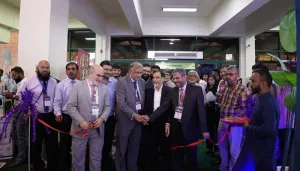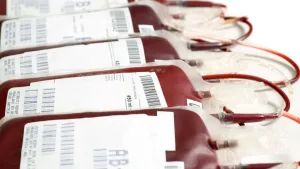The Pakistan Pharmaceutical Manufacturers’ Association (PPMA) recently hosted a groundbreaking workshop, “The Future of Pharma: AI Integration for Enhanced Drug Discovery and Personalized Medicine,” in Karachi. Led by AI expert Dr. Semih Kumluk of PwC Academy, the workshop explored AI’s potential to revolutionize Pakistan’s pharmaceutical sector, with a focus on time savings, data insights, and predictive analytics.
Dr. Kumluk highlighted AI’s ability to improve productivity, stating, “AI can achieve up to 40% time savings in various tasks.” In the pharmaceutical industry, this means more accurate, data-driven decisions that benefit healthcare professionals and patients alike. He also emphasized the need for enhanced data-sharing practices to unlock AI’s full potential in Pakistan.
“Data sharing is a challenge in the local pharma sector, but an AI-embedded data collection program could help foster better insights,” said Kumluk. He also explained how AI can optimize manufacturing by enabling predictive maintenance, thereby reducing machine downtimes and improving overall equipment effectiveness.
Former PPMA Chairman M. Haroon Qassim stressed the importance of keeping up with technological advancements, noting that AI can significantly improve the competitiveness of Pakistan’s pharmaceutical exports. He urged the government to allow pharmaceutical companies to retain a higher percentage of their export revenues, similar to the IT industry, to stimulate international growth.
“AI will make our products more cost-effective and of higher quality, helping us compete globally,” Qassim said. He projected that with the right policies, pharmaceutical exports could grow from $300 million to $2-3 billion in the next five years.
Dr. Qaiser Waheed, another former PPMA Chairman, echoed the call for digital transformation. He emphasized the need for Pakistan’s pharma industry to adopt AI, robotics, and nanotechnology to remain competitive globally. AI’s potential in enhancing drug quality, patient care, and logistics management was also a key focus.
AI can also play a crucial role in addressing Pakistan’s healthcare challenges, such as access to specialized care in rural areas. Syed Jamshed Ahmed, Deputy CEO of PharmEvo, highlighted AI’s potential to remotely assist in critical cases like heart attacks, significantly improving rural healthcare access.
While AI offers exciting opportunities, Kumluk also cautioned about ethical considerations, particularly regarding data privacy and algorithmic biases. Ensuring responsible AI usage will be key to maintaining trust in the industry.
AIinPharma #DrugDiscovery #PersonalizedMedicine #PPMA #AIWorkshop #HealthcareInnovation #PharmaTransformation #AIPharma




+ There are no comments
Add yours